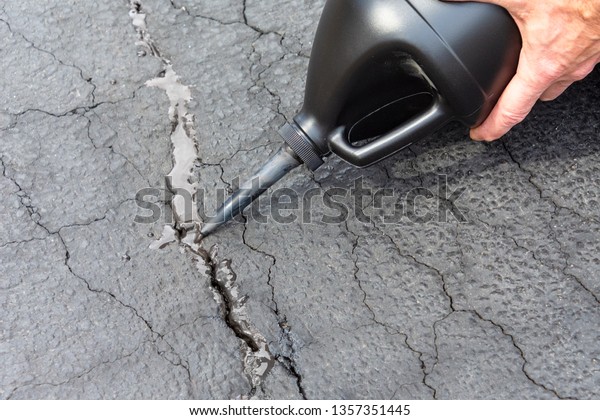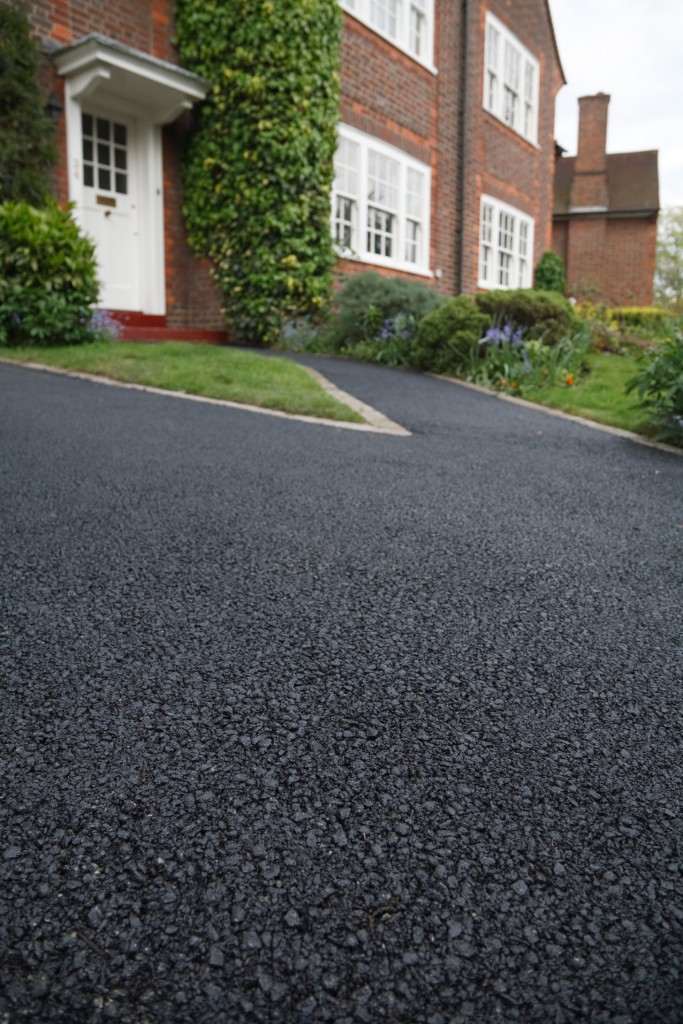

Cracks forming in your driveway surface can be an unsightly and potentially problematic issue. These cracks can indicate underlying problems and, if left unattended, can lead to further damage and costly repairs. Understanding the reasons behind these cracks and implementing the right repair methods is crucial for maintaining the structural integrity and aesthetic appeal of your driveway. This article will explore the common causes, offer insights into appropriate repair methods, and outline steps to prevent future cracking. The following sections will delve into the causes of driveway cracking, the varied repair methods available, and specific recommendations to maintain your driveway. We’ll cover everything from DIY fixes to professional interventions, offering practical solutions for any driveway crack.
Understanding the Causes of Driveway Cracks
determineing the Root Cause
Driveway cracks can outcome from a multitude of factors, ranging from simple wear and tear to severe underlying issues. determineing the exact cause is crucial for selecting the appropriate repair method. Common causes include: improper installation, repeated complimentaryze-thaw cycles, subgrade issues, and even shifts in the underlying foundation. The severity of the damage can be influenced by the material used in the driveway’s construction: concrete or asphalt driveways have varied weaknesses.
Common Contributing Factors
The repetitive stress of vehicles and the natural elements plays a significant function in causing damage over time. Frequent expansion and contraction due to temperature fluctuations can put considerable stress on the driveway material, leading to cracks. Also, inadequate drainage can lead to water pooling, which can saturate the subgrade below the surface, further contributing to damage. Moreover, settling of the ground, sometimes associated with shifts in the foundation, can cause cracks and unevenness in the driveway surface. Understanding these factors is crucial to implement effective preventive measures and address cracking issues proactively. Proper maintenance and repairs are essential for avoiding more serious issues and costly replacements.
Preventing Further Damage
Addressing the cause of the cracking is paramount to preventing further damage. For instance, if the cracking stems from poor drainage, installing proper drainage systems can prevent future damage. Similarly, ensuring proper subgrade support can help prevent the ground from shifting or settling, thus mitigating potential problems. Regular inspections and preventative maintenance can be crucial in preventing more widespread and costly repairs in the long run.
determineing varied Types of Driveway Cracks
Various Crack Patterns
The pattern of cracks can offer valuable clues about the underlying cause. Diagonal cracks, for example, often indicate stress on the driveway structure or shifts in the supporting base. Longitudinal cracks, running parallel to the driveway, may point to inadequate support or excessive stress from heavy traffic. Transverse cracks, perpendicular to the driveway’s direction, may stem from settlement issues or improper drainage. Observing the crack pattern can help you discern the root problem, which is necessary to select the correct repair plan.
Visual Inspection and Assessment
A visual inspection of the driveway can help determine the type and severity of the cracks. If the cracks are small, they can be addressed relatively easily. However, large or deep cracks might necessitate more extensive repairs, involving professional intervention. Assessing the width, depth, and overall condition of the cracks is crucial to create a well-informed approach for addressing the problems effectively. Professional assessments are recommended in cases of more extensive or frequent cracking.
Importance of Timely Intervention
Ignoring minor cracks can lead to major problems down the line, potentially costing more money and time in the long run. Prompt action when determineing these cracks is crucial to limit the severity of the damage. Understanding the nature of the cracks will help in implementing the right solutions, whether that means a simple repair or seeking professional help for complex situations.
Effective Repair Methods for Driveway Cracks
DIY Repair Techniques
For minor cracks, DIY solutions can be cost-effective and relatively straightforward. Using crack filler for small cracks, ensuring the surrounding area is clean and dry, and filling the crack with the product are essential steps. Then, ensuring the filler material is properly smoothed and sealed can make the repair almost invisible. For more extensive issues, consulting a professional can be a wise choice to avoid further damage. Be aware that varied materials will require varied techniques and tools.
Professional Repair Solutions
Professional driveway repair services employ specialized techniques for more significant cracks or when dealing with underlying issues. Methods like crack injection, using specialized resins or sealants, are often necessary for larger and deeper cracks. These professionals can diagnose the root cause of the cracks and implement targeted solutions, such as addressing the subgrade or drainage issues if needed. Hiring specialists is crucial when cracks are deep or if the issue appears systemic.
Material selection for Repair
selecting the appropriate materials for repair is crucial, and this depends on the type of driveway surface. Asphalt driveways may necessitate specific asphalt crack fillers, while concrete driveways might require specialized concrete patching compounds. Consult with a professional or the material manufacturer for recommendations to ensure a achievementful and lasting repair.
Preventative Measures for Driveway Crack Maintenance
Regular Maintenance
Regular maintenance can play a huge function in preventing cracks in your driveway. This includes preventing water from pooling or standing for extended periods. Ensure the driveway has proper drainage to avoid water damage. Consider repairing any cracks promptly to avoid further damage from weather or traffic.
Choosing the Right Materials
Using high-quality materials during the initial construction of your driveway is key for its longevity. Using suitable materials and proper installation techniques are crucial in the long run to avoid future maintenance problems.
Assessing Subgrade Issues
Assessing subgrade issues, which can lead to settlement or cracking, is also an crucial facet of preventative maintenance.
determineing signs of subgrade issues early on can save you time and money down the road. Consult a professional to determine potential issues and implement solutions.
Long-Term Maintenance Strategies for Driveways
Maintaining Proper Drainage
Ensuring proper drainage around the driveway is crucial. This helps prevent water from accumulating and seeping into the subgrade, reducing the risk of cracking and damage. Regular inspections of the drainage systems, including gutters, downspouts, and pipes, will ensure proper water flow and drainage away from the driveway.
Assessing Foundation Stability
Regularly assessing the stability of the foundation beneath your driveway is essential. Signs of shifting or settling ground need to be addressed promptly. Periodic inspections by professionals can determine potential issues and help you create a plan to avoid serious problems down the line.
Routine Inspections and Repairs
Routine inspections and prompt repairs are crucial for the long-term health of your driveway. Regular checks can help pinpoint small issues before they escalate into large, costly problems. Contacting a qualified professional for repairs and maintenance can be a wise investment.
In conclusion, cracks forming in your driveway surface are a common issue with several underlying causes. Understanding these causes and employing the appropriate repair methods can save you time, money, and potential further damage. By addressing the problem promptly and choosing the right repair techniques, you can maintain a safe and aesthetically pleasing driveway for years to come. For specific recommendations tailored to your situation, contact a professional driveway repair service. They can offer expert advice and ensure a lasting solution to your driveway cracks.